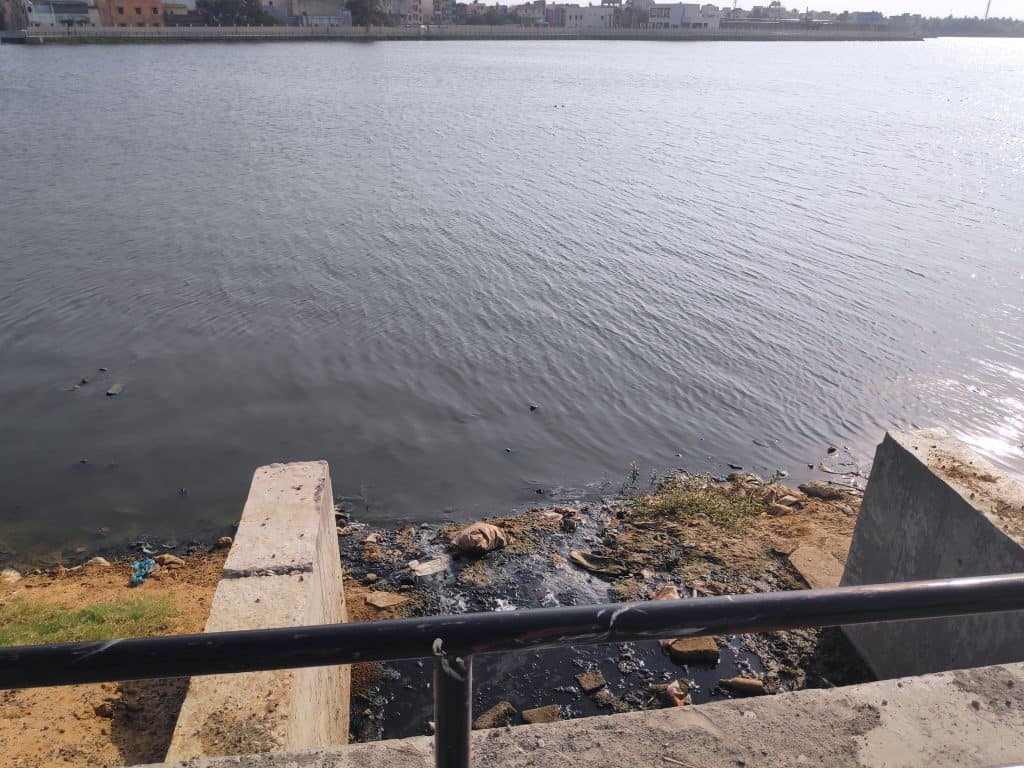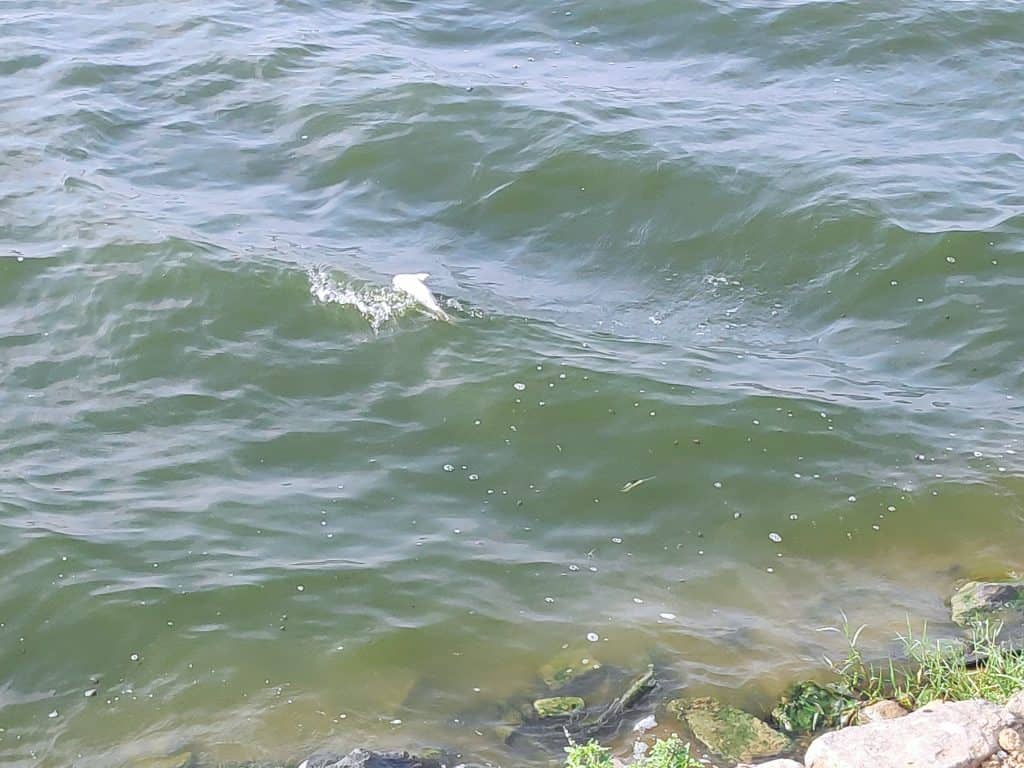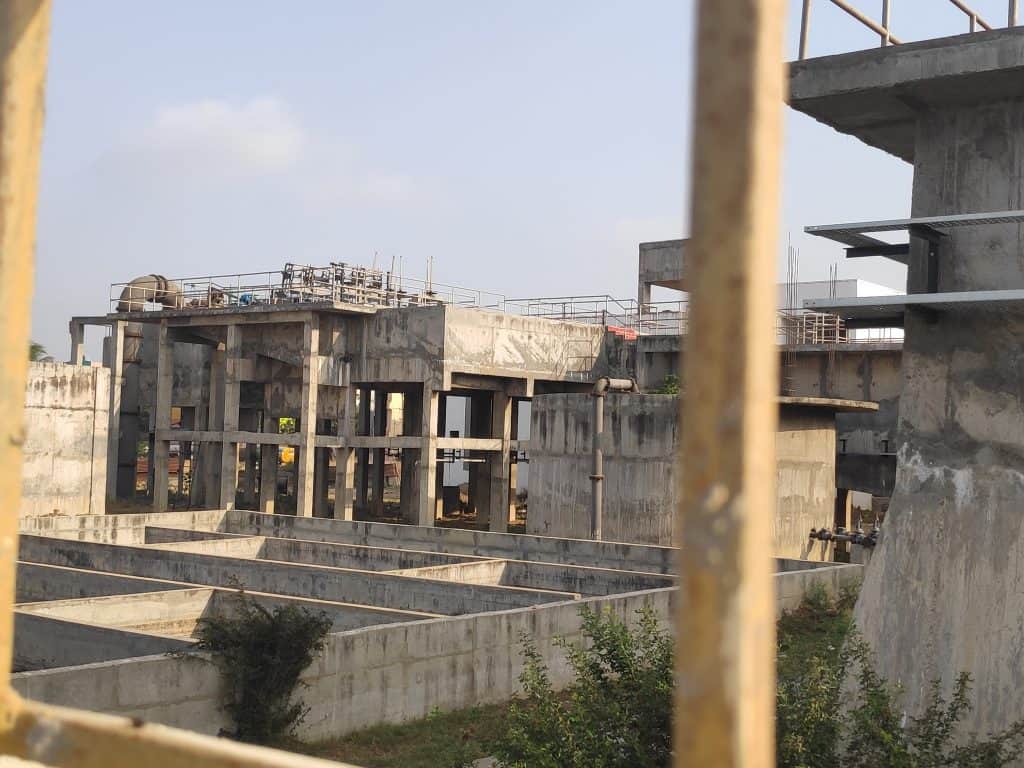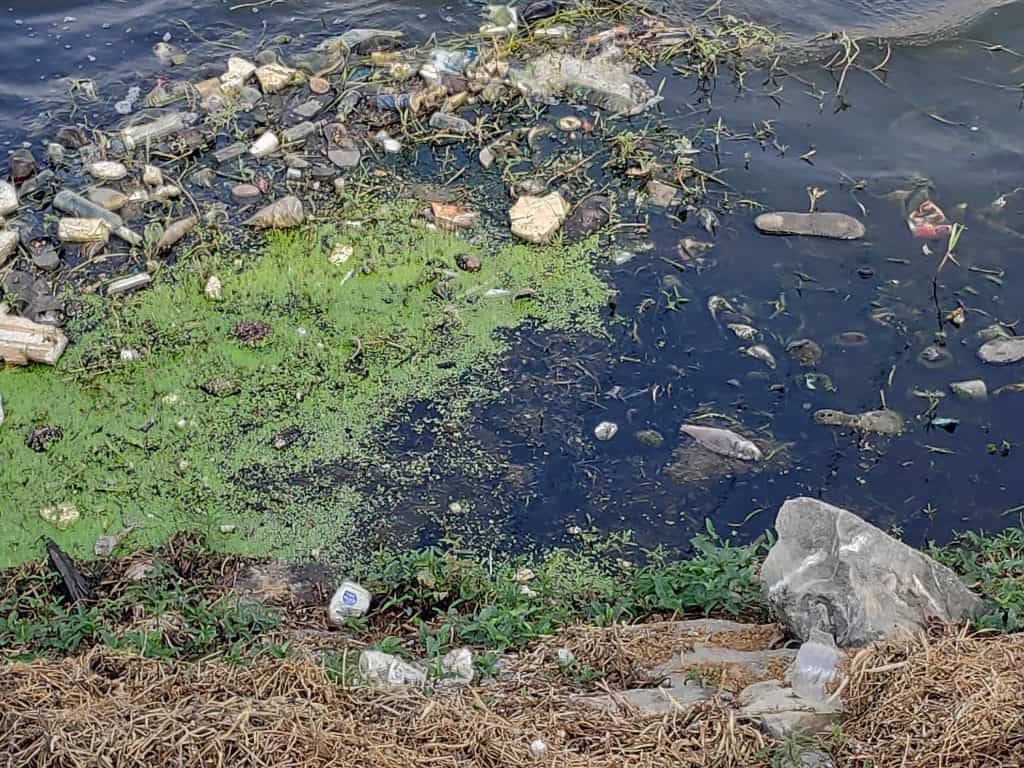When the Tamil Nadu government proposed to restore Avadi’s Paruthipattu Lake in 2016, the suburban residents rejoiced. The Public Works Department (PWD)-owned lake, spanning 87.03 acres was to be restored in a sustainable manner, at an expenditure of Rs 28 crore. Unfortunately, the work has been a curse, leading to untreated sewage water from 3,500 houses around flowing straight into the water body.
The plan was to convert the Lake into an eco-park, much like the one at Chetpet, with boating facilities, a children’s park and walking track. It was expected that the water body would spring back to life with the fish and migratory bird population multiplying.
The restoration fiasco
PWD almost succeeded in making the plan a reality. The work has reached the last phase and the lake now boasts of a walking track around it, mudflats to attract birds and boat deck facilities. Except that, in doing all this, it has made one grave mistake that has rung the death knell for the lake and its biodiversity.
In a measure portraying utter negligence, the Public Works Department (PWD) has destroyed the waste stabilisation ponds (also called open aeration ponds) in the lake that were used to treat sewage water. In this method, used widely in many developing countries, sewage water is treated under the influence of sunlight, wind, micro organisms and algae.
The result: pitch dark sewage water from the residential and commercial properties now mixes directly with the lake water, killing its marine life. Dead fish floating on the lake’s surface is a frequent sight, mocking the claimed eco-restoration of the park. “Houses in Periyar Nagar and adjoining localities are not connected with the underground sewage network. Sewage from these houses also pollute the lake,” said S Mangalanathan, a resident of Avadi Housing Board.
The 36 MLD Sewage Treatment Plant (STP) near the lake, a replacement for the aeration pond is still under construction. “The pond was razed even before the construction of the STP by the Chennai Metro Water Supply and Sewerage Board (CMWSSB). This indicates the lack of coordination between PWD and CMWSSB,” said V Raghuram, a former Social Work (aided) student from Madras Christian College, who has done a survey on the restoration and protection of Paruthipattu Lake.
“It has been six months since the pond was destroyed, as part of the eco restoration work. Metro Water department aims to complete the STP work by June end. STP would put an end to sewage contamination in the lake,” said Vaidyalingam, Municipal Engineer, Avadi Municipality.
The ideal plan should have been to destroy the waste stabilisation pond only after the STP had been constructed, especially as there is no STP in the vicinity where the sewage could be diverted. When asked about it, a PWD official cited the ongoing construction of STP in his defence. “The STP will be commissioned by June end, after which this problem shall be rectified. A lot of meetings have been held with officials from Metro water, Avadi Municipality and PWD to speed up the STP work,” the official said.
None of the officials from Avadi Municipality or PWD, however, seemed to have an explanation for the lack of coordination that led to this mix-up in the first place, contaminating Paruthipattu Lake.
No easy solution in sight
Paruthipattu Lake is in fact one of the lakes identified for restoration under the Master Plan of Eco-Restoration of waterbodies in Chennai Metropolitan Authority, as mentioned in a document sourced from Metro Water department. The government’s project report mentioned that the lake should be restored in an environmentally sustainable way, so as to contribute to its long term sustainability.
“But how is it sustainable when the root cause of pollution has not been addressed? Who would want to go boating on a highly polluted lake,” asked Prithvi Raj, a resident of Avadi Housing Board.
“Raw sewage contains E coli bacteria, nitrogen and ammonia among many other deadly chemicals. It would have polluted the ground water at the lake and its surroundings by now. It will take a minimum of two years for the lake to rejuvenate itself, even after sewage flow has been stopped,” said S Janakarajan, a retired professor of Madras Institute of Development Studies (MIDS).
What do citizens want?
The water resources department has done a commendable job of de-silting the lake and constructing bunds. Work is on to complete the boating facilities and to erect the lamp posts. However, this doesn’t make the citizens happy. The survey conducted by social worker V Raghuram with 50 citizens from Avadi reveals that the eco-park (as it stands) brings no joy to them.
“More than 40 citizens expressed distress over the unabated contamination of the lake. The sewage filled lake has become a breeding ground for mosquitoes and citizens are frightened about disease outbreak,” V Raghuram, also an Avadi resident stated.
Groundwater pollution is also feared by residents who live in the vicinity of the lake. “Water smells foul these days. We did not know the reason behind it all this while,” said a resident, seeking anonymity. “Basic amenities such as fresh water is our priority, not a boating facility, especially in this time of acute water crisis. We can’t pin hopes on the polluted lake to recharge our groundwater,” they say.




Sorry state of affairs.We in Tamil Nadu are infamous in destroying our own precious water bodies, the people and the Govt both being equally responsible.Which country will destroy a river like Coovum running in the heart of Chennai into a filthy drainage channel?God alone can save us.